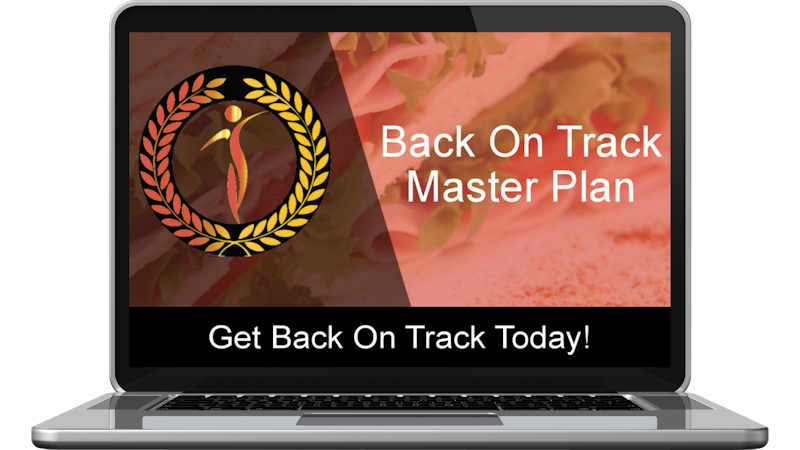I’m not a massive proponent of ‘abstinence’ (from sugar and simple carbs) as a long term lifestyle choice. I understand that some people get immense benefit from adopting an ‘addiction-recovery’ stance on their obesity issues, and I’ll support this if they experience it as a helpful narrative.
There can be value to having a season of embracing such a view, for what we learn along the way. However, my experience, personally and professionally, is that eating issues are more complex than this, and ultimately extreme ‘keto’ and ‘sugar free living’ come to feel a lot like dieting. And diets fail, leading to self-loathing and cyclical weight gain. This is well documented.
I’ve long-since said that the bariatric “road is long, with many a winding curve”, and what is useful in one season may not be as effective in the next. I’ve found it to be a dynamic journey, with demands that shift and change from time to time, and the challenge is always to keep one’s mind in the game, and be aware of what one’s needs are at that juncture.
There are times when sugar-excess and ‘carb-comas’ necessitate a full-scale pull back into some sort of sobriety, to reset. This is why I created my “BACK ON TRACK MASTER PLAN” course, to help people who are at an utter loss, hopeless, out of control and regaining, to hit ‘pause’ on their downward spiral, and be guided through a quick and powerful system to sort that out! In “Back on Track”, I ask my participants to design their ideal eating week, peppered with plenty of self-love, self-care, and compassion. And then to set about achieving just one week of living like that and thinking like that, with the goal that it becomes somewhat contagious. I also build in technology to assist when it doesn’t go smoothly.
I am adamant that with diligent thought work, emotion regulation, and harnessing of mental tools, skills and habits, in time we don’t need to view food choices in such binary terms. At some point on the bariatric road, I’ve found the focus shifts from numbers on scale to health, nutrition and fitness. My current agenda is building and sustaining a life full of habits that serve my ultimate ambition of maintenance at goal, for life. I learnt from James Clear in his “Atomic Habits” how we need a goal-focussed SYSTEM, and not just a GOAL, in order to have real success in the long term.
There needs to be a set of structures in place that become hard-wired, which through consistency keep us safe from health decline and regain. For me, these systems include my trusty morning ritual of meditation, journaling and reading, planning my day (what I will eat, and what I will do and care about), exercise, working with a dietician when needed, (and ditto life coach!), weekly therapy, mindful emotion regulation, and paying attention to what I want to “eat about” rather than feel. It’s difficult to focus on only one element of post-bariatric life, and assume that success is possible.
The Bariatric Bump, at 7-9 Month Post Surgery
When I was 8 or 9 months out from surgery, I experienced what most patients do at that point: I became hungry. And food focussed. Cravings soared. Urges escalated. And I was fearful that all was lost. At that point, I felt compelled and obliged to ‘turn to keto’ and embrace abstinence. I tinkered with the idea that I was a ‘food addict’, and that sobriety from sugar and flour would be my ticket out. In parallel, I was exposed to the world of ‘intuitive eating’, which means different things to different people, and is often discounted for the notion that one would eat whatever one wants, whenever one wants. Such an idea was more terrifying than keto!
In my search for answers, I considered my own clinical practice and psychological expertise. I explored behaviour therapies which teach tools, skills, and systems for stopping a binge (on drugs / gambling / rage / food / booze, etc) right in its tracks. I pondered how pent-up frustration and emotion over time seeks release, and how this energy can be better metabolised without finding oneself shovelling food to fix feelings. And I realised, at this point, that mastering post-bariatric life was infinitely more than food choices, and whether to eat sugar or not. It was about being willing to experience life in all it’s beautiful and miserable technicolour - but to actually experience it - rather than to anaesthetise rough times with a substance of choice. And thus, my BARIATRIC MIND MASTERS was born, first for myself, and then for my clients who would come to rely on the same teaching, now formalised into a comprehensive program.
So, in short, sometimes you might need to view yourself as a sugar addict and embrace this as your primary eating concern. If this feels empowering and facilitates a sense of control, then it should be experimented with. The other side of the coin, though, is that even keto beings in the mind (as I’ve written about elsewhere), and so the mental and emotional work simply cannot be side-stepped or avoided. Long term success is always going to come down to how much attention has been paid to figuring out thoughts, feelings, and the urge to overeat. And the willingness to be really uncomfortable through a craving.

